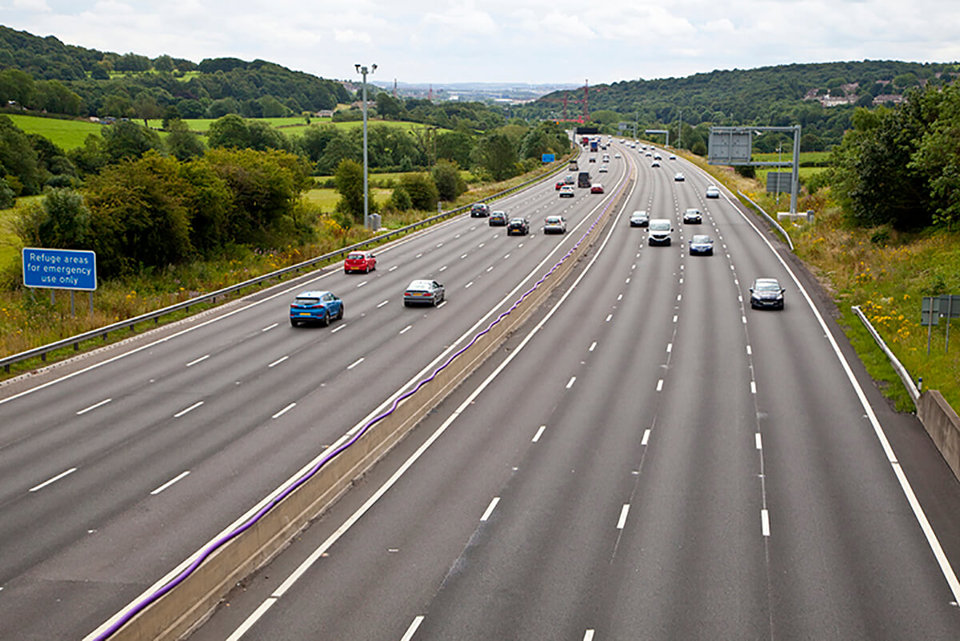The ban on the sale of new petrol and diesel cars and vans will be brought forward to 2035 and will now include hybrids, the Prime Minister will announce today (Tuesday February 4).
The Government had previously announced they would end the sale of new fossil fuel vehicles from 2040 but would still allow the sale of hybrid vehicles that had a zero-emission capability.
However, speaking at the Conservative party conference last October, transport secretary Grant Shapps hinted at bringing the date forward.
Launching the next UN climate conference COP26 today (Tuesday February 4), the Prime Minister Boris Johnson will confirm the much tougher, stricter timetable.
Shapps said: “This Government’s £1.5 billion strategy to make owning an electric vehicle as easy as possible is working - last year alone, a fully electric car was sold every 15 minutes.
“We want to go further than ever before. That’s why we are bringing forward our already ambitious target to end the sale of new petrol and diesel cars to tackle climate change and reduce emissions.”
The Government says it will continue to work with all sectors of industry to accelerate the rollout of zero emission vehicles.
But, the Society of Motor Manufacturers and Traders (SMMT), which represents car and van makers in the UK, says the Government has set the new target without a plan showing how it intends to get there.
Mike Hawes, SMMT chief executive, said: "Manufacturers are fully invested in a zero emissions future, with some 60 plug-in models now on the market and 34 more coming in 2020. However, with current demand for this still expensive technology still just a fraction of sales, it’s clear that accelerating an already very challenging ambition will take more than industry investment.
"This is about market transformation, yet we still don’t have clarity on the future of the plug-in car grant - the most significant driver of EV uptake - which ends in just 60 days’ time, while the UK’s charging network is still woefully inadequate.
“If the UK is to lead the global zero emissions agenda, we need a competitive marketplace and a competitive business environment to encourage manufacturers to sell and build here.
"A date without a plan will merely destroy value today. So we therefore need to hear how government plans to fulfil its ambitions in a sustainable way, one that safeguards industry and jobs, allows people from all income groups and regions to adapt and benefit, and, crucially, does not undermine sales of today’s low emission technologies, including popular hybrids, all of which are essential to deliver air quality and climate change goals now.”
Helen Clarkson, CEO of the international non-profit The Climate Group, welcomed the “more ambitious” target from the Government.
However, she said: “We believe that this could still be sooner – and that to be a global leader, especially post-Brexit, a 2030 phase-out commitment is required; without this, we risk being out of step with our international peers.
“Our business campaign for the 100% adoption of electric vehicles by 2030, EV100, has 62 corporate members, many of which are British, including AstraZeneca, BT, Centrica, Foxtons, Mitie, RBS, SSE and Unilever. Businesses are showing what is possible and The Climate Group would love to see this level of ambition matched.”
Through EV100, the UK has the second highest number of corporate fleet vehicles committed to switching to electric, after Germany.
Government policy must be strong and consistent to accelerate this transition, and to help the UK become a world leader on electric vehicles, it says.
So far, eight countries have already committed to more ambitious phase-out dates than the UK, while Scotland has had a 2032 phase-out date for new petrol and diesel vehicles in place since 2017.
The RAC was not surprised by the Government’s plan to bring forward the date to ban the sale of petrol and diesel vehicles.
RAC head of policy Nicholas Lyes said: “A more ambitious target should be the catalyst for faster change, but there are clearly many hurdles to cross.
"Manufacturers face a great challenge in switching their production from conventional powertrains to cleaner electric technology.
"More electric vehicles (EVs) will also require a great deal of investment in charging infrastructure – particularly for those who rely on on-street parking outside their homes."
Lyes also believes that we should not overlook the role plug-in hybrid vehicles could play in bridging the gap to going completely electric.
“In the meantime we urge the Government to extend the plug-in car grant for at least another three years to help those that want to go electric, but who are put off by the high initial costs," he said.
"At a local level, authorities should also incentivise their use with cheaper parking rates and lower residents’ parking permit fees.”

























Edward Handley - 04/02/2020 12:12
Governments love a good soundbite, and bringing forward the ban on petrol and diesel by 5 years is certainly a nice ear catching soundbite for a Minister keen to flash his green credentials. The question however is "Is it feasable?" We are all waiting for the big breakthrough in battery or fuel cell technology, but so far they have proved elusive. Without a technological breakthrough banning petrol and diesel is not practical because the supply of the rare earths and metals is very limited and without them the huge number of batteries needed are not going to be available, and certainly not at reasonable cost. Oil is a major raw material and without oil most industrial production is impossible. It is the basis of all plastics, essential for rubber production, etc., so petrol and diesel will still be produced - as by products if nothing else. Are the oil companies going to pump it back into the oil wells? Of course not, they will still sell it as there will still be massive demand from all over the world. Instead of petrol and diesel being burned in clean engines in the UK and Europe, it will get used in old and much more polluting engines in the 3rd world. Unless of course the Government decide to build a new set of oil powered power stations to generate electricity to charge all those new electric cars, trucks and buses - but that would be a touch hypocratic even for our politicians! The problem of air quality will not be solved, just moved abroad, but nature and winds do not respect arbitary frontiers laid down by humans.